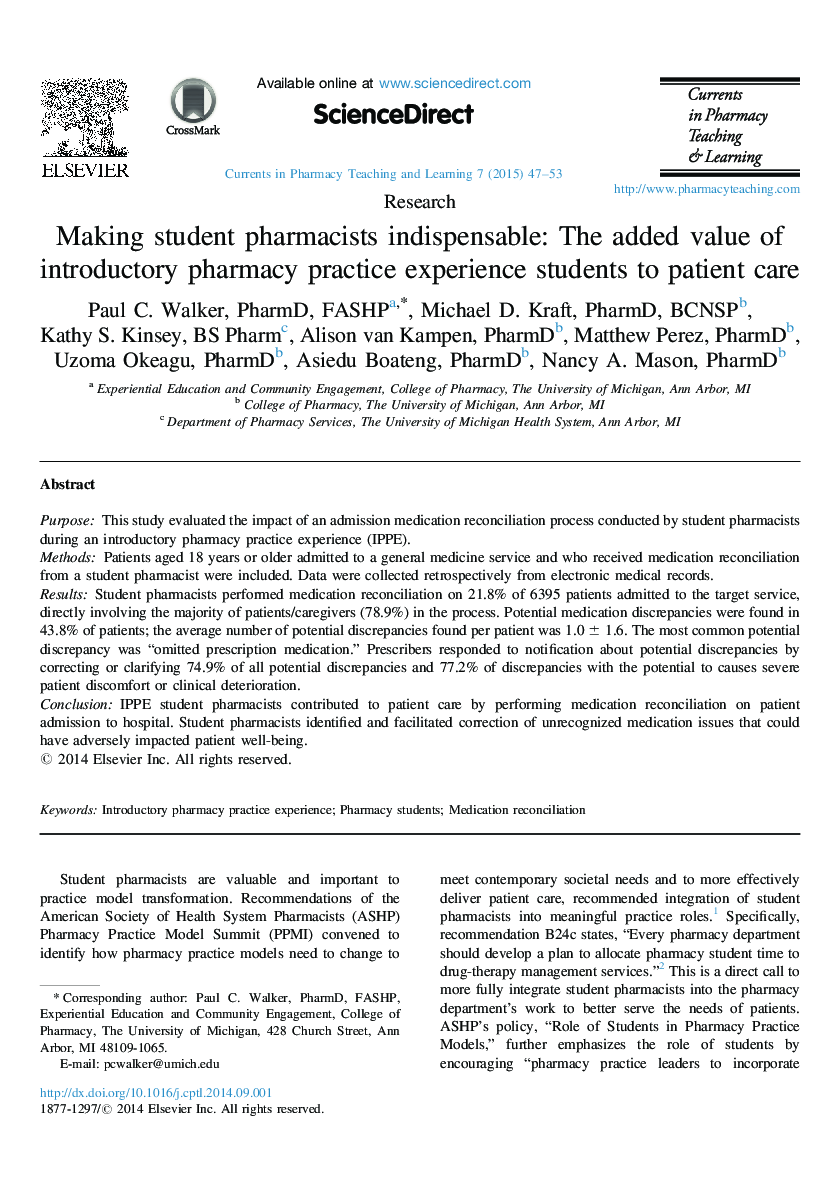| Article ID | Journal | Published Year | Pages | File Type |
|---|---|---|---|---|
| 353019 | Currents in Pharmacy Teaching and Learning | 2015 | 7 Pages |
PurposeThis study evaluated the impact of an admission medication reconciliation process conducted by student pharmacists during an introductory pharmacy practice experience (IPPE).MethodsPatients aged 18 years or older admitted to a general medicine service and who received medication reconciliation from a student pharmacist were included. Data were collected retrospectively from electronic medical records.ResultsStudent pharmacists performed medication reconciliation on 21.8% of 6395 patients admitted to the target service, directly involving the majority of patients/caregivers (78.9%) in the process. Potential medication discrepancies were found in 43.8% of patients; the average number of potential discrepancies found per patient was 1.0 ± 1.6. The most common potential discrepancy was “omitted prescription medication.” Prescribers responded to notification about potential discrepancies by correcting or clarifying 74.9% of all potential discrepancies and 77.2% of discrepancies with the potential to causes severe patient discomfort or clinical deterioration.ConclusionIPPE student pharmacists contributed to patient care by performing medication reconciliation on patient admission to hospital. Student pharmacists identified and facilitated correction of unrecognized medication issues that could have adversely impacted patient well-being.
